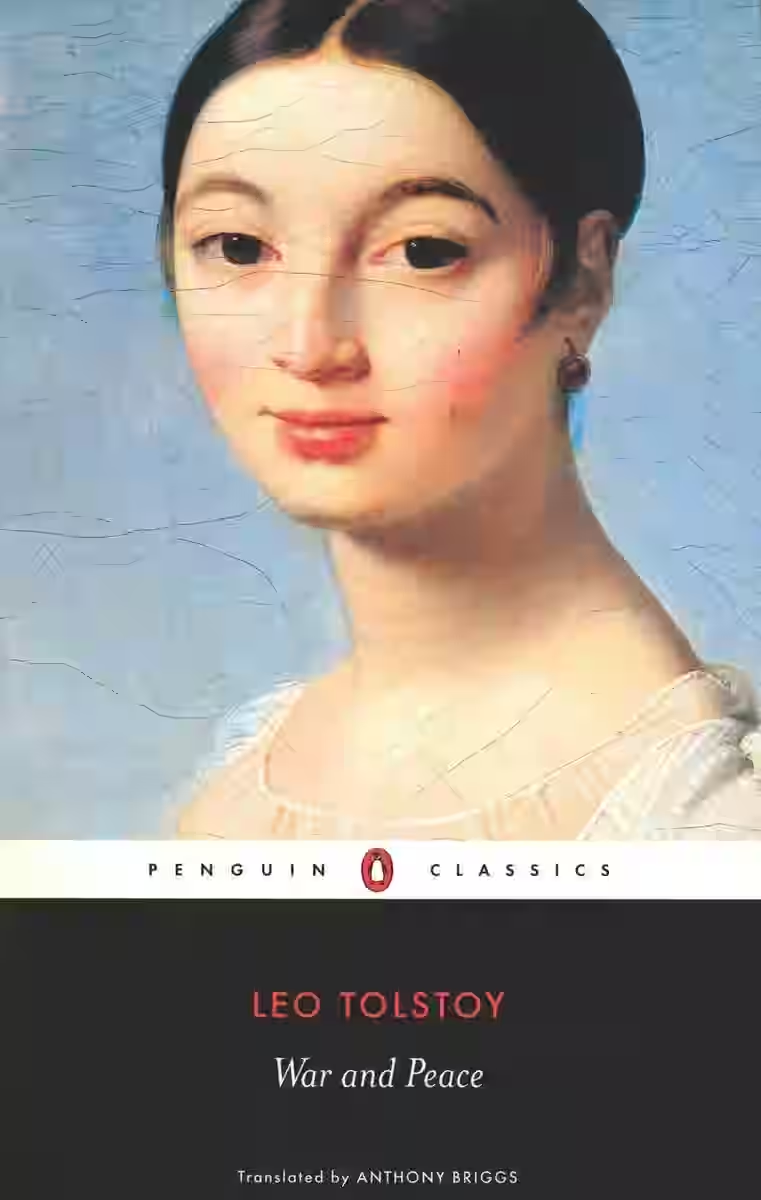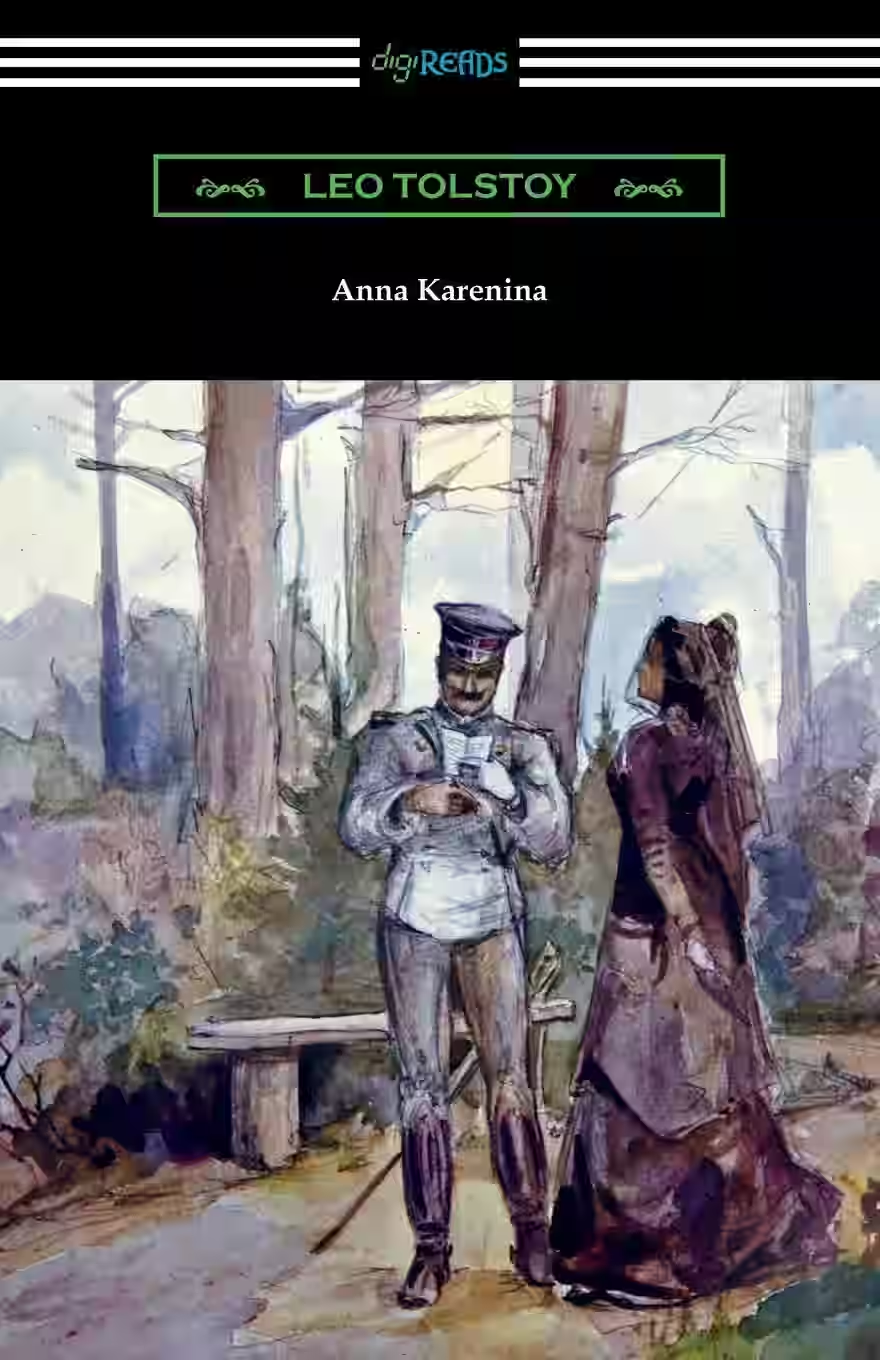Leo Tolstoy
A Russian novelist and philosopher, widely regarded as one of the greatest authors of all time. His monumental works, War and Peace and Anna Karenina, are celebrated for their epic scope, psychological realism, and profound insights into human nature, society, and morality. Tolstoy's later writings explored Christian anarchist and non-violent resistance philosophies, profoundly influencing political thought. His masterful storytelling and deep philosophical inquiries solidified his enduring legacy in world literature.

At a glittering society party in St Petersburg in 1805, conversations are dominated by the prospect of war. Terror swiftly engulfs the country as Napoleon's army marches on Russia, and the lives of three young people are changed forever. The stories of quixotic Pierre, cynical Andrey and impetuous Natasha interweave with a huge cast, from aristocrats and peasants, to soldiers and Napoleon himself. In War and Peace (1868-9), Tolstoy entwines grand themes - conflict and love, birth and death, free will and fate - with unforgettable scenes of nineteenth-century Russia, to create a magnificent epic of human life in all its imperfection and grandeur.

Acclaimed by many as the world's greatest novel, Anna Karenina provides a vast panorama of contemporary life in Russia and of humanity in general. In it Tolstoy uses his intense imaginative insight to create some of the most memorable characters in all of literature. Anna is a sophisticated woman who abandons her empty existence as the wife of Karenin and turns to Count Vronsky to fulfil her passionate nature - with tragic consequences. Levin is a reflection of Tolstoy himself, often expressing the author's own views and convictions.